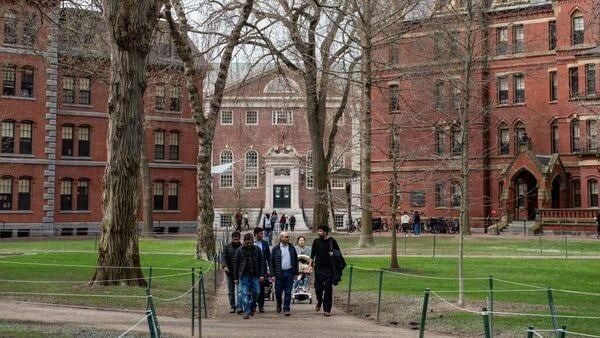
Washington, April 22 (HS): Harvard University has filed a lawsuit against the Trump administration, challenging a recent freeze on over $2.2 billion in research funding. The lawsuit, submitted to the U.S. District Court in Boston, contends that the freeze is unconstitutional and violates the First Amendment and federal laws and procedure.
President Alan Garber stated that the action was taken in response to government demands for changes in Harvard’s governance, hiring, and admissions practices, as well as a push for “viewpoint diversity” through audits of faculty and student perspectives.
Garber described these demands as intrusive, suggesting they would impose unprecedented control over the university. He emphasized that following Harvard’s rejection of the administration’s requests, the government announced the funding freeze and even considered revoking Harvard’s tax-exempt status, which could adversely affect international students.
Harvard’s complaint asserts that the First Amendment safeguards free speech from government overreach and the administration's threats are an attempt to coerce compliance with its ideological agenda. The suit argues that the government's actions violate established procedures for addressing alleged civil rights violations, which require a series of steps, starting with voluntary negotiations, before any funding can be terminated.
Garber reiterated the lawsuit's goal: to halt the funding freeze, arguing that the federal government must engage constructively with Harvard regarding its efforts to combat antisemitism rather than resorting to punitive measures.
The lawsuit highlights urgent procedural failings and the arbitrary nature of the government's recent actions against Harvard University.
The timeline reveals a swift government escalation beginning in February with a Task Force on Antisemitism inquiry, leading to an official campus visit planned for late April. However, by late March, Harvard was notified of a review of $8.7 billion in research grants linked to its hospital affiliates.
Initial conditions for safeguarding this funding were set out in a letter received on April 3, followed by a more detailed letter on April 11, containing extensive demands. These overreaching conditions led Harvard’s representatives, particularly Garber, to refuse negotiations regarding the University's independence and constitutional rights, arguing that such actions threaten critical research in fields like cancer and infectious diseases.
The lawsuit underscores the looming risk to ongoing research and jobs linked to federal grants if funding isn't restored, implying lasting detrimental effects. Garber notes that the government's overreach undermines not only the nation’s health advancements but also its innovation leadership. He acknowledges that addressing antisemitism on campus is crucial and stresses the need for Harvard to meet its ethical commitments.
Harvard has initiated steps toward this goal, with forthcoming reports from Task Forces on combating antisemitism and other forms of bias expected to outline actionable recommendations. Garber, affirming a commitment to combating hate, emphasizes the importance of understanding and vigilance in responding to rising antisemitism and insists on Harvard's dedication to fulfill its legal and moral duties.
Hindusthan Samachar / Jun Sarkar








